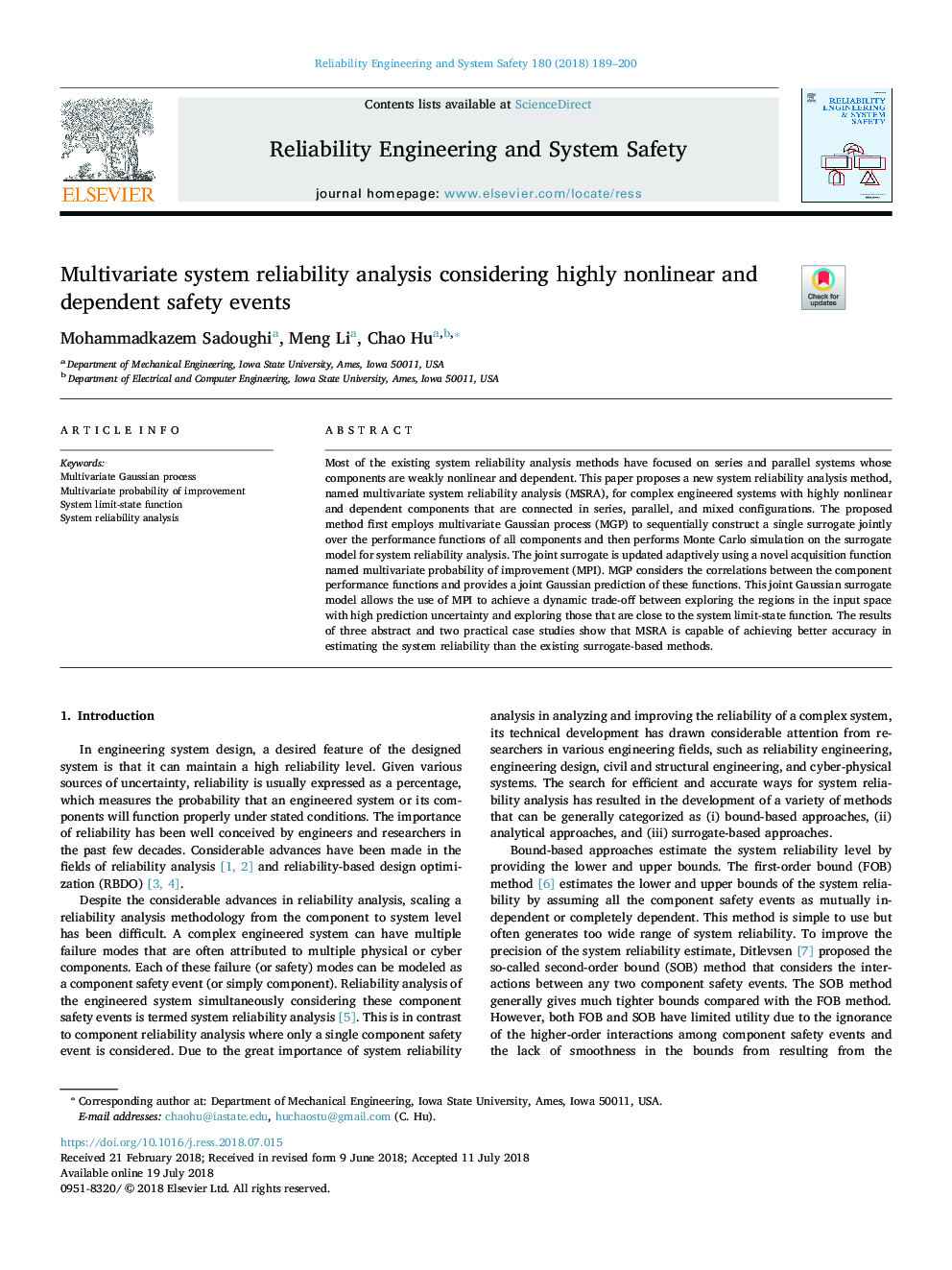| Article ID | Journal | Published Year | Pages | File Type |
|---|---|---|---|---|
| 7195064 | Reliability Engineering & System Safety | 2018 | 12 Pages |
Abstract
Most of the existing system reliability analysis methods have focused on series and parallel systems whose components are weakly nonlinear and dependent. This paper proposes a new system reliability analysis method, named multivariate system reliability analysis (MSRA), for complex engineered systems with highly nonlinear and dependent components that are connected in series, parallel, and mixed configurations. The proposed method first employs multivariate Gaussian process (MGP) to sequentially construct a single surrogate jointly over the performance functions of all components and then performs Monte Carlo simulation on the surrogate model for system reliability analysis. The joint surrogate is updated adaptively using a novel acquisition function named multivariate probability of improvement (MPI). MGP considers the correlations between the component performance functions and provides a joint Gaussian prediction of these functions. This joint Gaussian surrogate model allows the use of MPI to achieve a dynamic trade-off between exploring the regions in the input space with high prediction uncertainty and exploring those that are close to the system limit-state function. The results of three abstract and two practical case studies show that MSRA is capable of achieving better accuracy in estimating the system reliability than the existing surrogate-based methods.
Related Topics
Physical Sciences and Engineering
Engineering
Mechanical Engineering
Authors
Mohammadkazem Sadoughi, Meng Li, Chao Hu,
